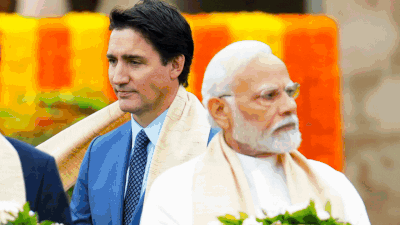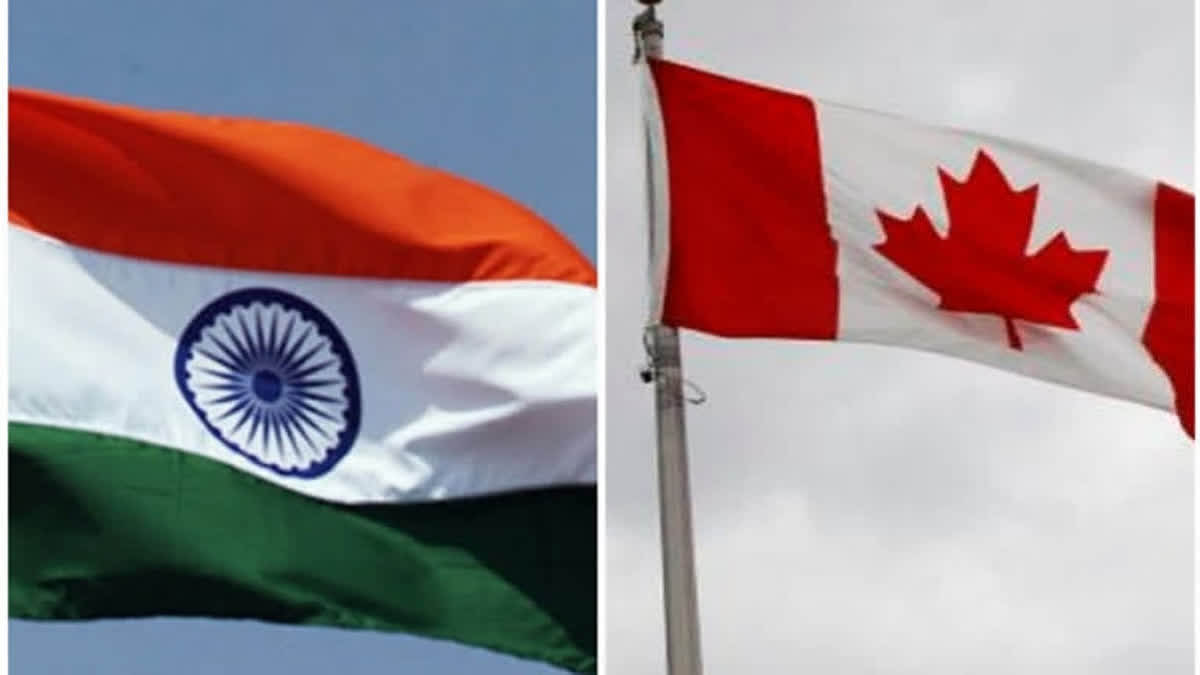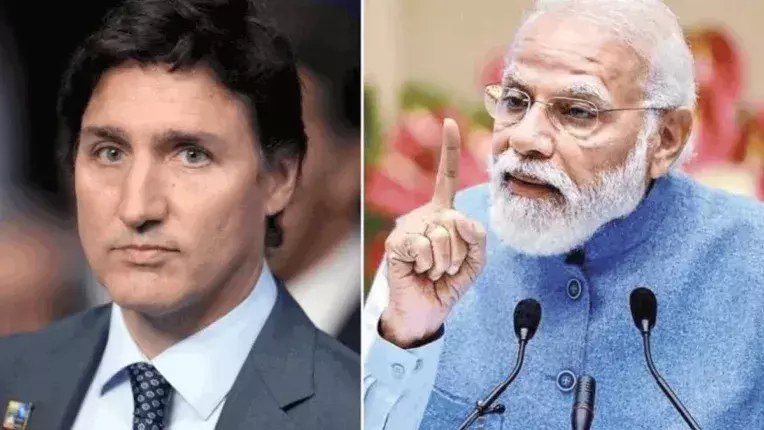Diplomatic Strain: India Suspends Visa Services for Canadians Amidst Escalating Tensions

Diplomatic Strain: India Suspends Visa Services for Canadians Amidst Escalating Tensions
In a move that underscores the deepening diplomatic tensions between India and Canada, the Indian government has decided to suspend visa services indefinitely for Canadian nationals. This decision comes on the heels of Canadian Prime Minister Justin Trudeau‘s controversial allegations that India played a role in the killing of Khalistani terrorist Hardeep Singh Nijjar. An Indian official confirmed the suspension, which is expected to have significant implications for travel and relations between the two nations.
Tensions Reach a Boiling Point
The diplomatic rift between India and Canada has been steadily escalating in recent weeks, with Trudeau’s allegations adding fuel to an already contentious relationship. The Canadian Prime Minister’s statements regarding India’s alleged involvement in the assassination of Hardeep Singh Nijjar, a prominent Khalistani figure, have not only strained bilateral relations but have also raised eyebrows in the international community.
The situation deteriorated further when India issued a travel advisory to its citizens residing in Canada, urging them to exercise “utmost caution.” This advisory was seen as a response to concerns about the safety and security of Indian expatriates in Canada in the wake of Trudeau’s allegations.
India’s Visa Suspension – A Diplomatic Maneuver?
The decision to suspend visa services for Canadians is a significant and unprecedented step in this diplomatic standoff. Indian authorities have made it clear that this move is in direct response to Trudeau’s accusations, which India vehemently denies. The suspension of visa services effectively puts a halt to travel between the two countries, impacting tourism, business, education, and family visits.
It is important to note that while visa services have been suspended indefinitely, Indian citizens currently in Canada are not affected by this decision. However, it is unclear how long this suspension will last and what the future holds for bilateral relations.

Trudeau’s Allegations and India’s Denial
The controversy that triggered this latest diplomatic crisis centers around the allegations made by Canadian Prime Minister Justin Trudeau. In a press conference, Trudeau claimed that India had played a role in the assassination of Hardeep Singh Nijjar, a known supporter of the Khalistani movement. Trudeau’s statements were met with immediate backlash from Indian officials who vehemently denied any involvement in Nijjar’s death.
India’s Ministry of External Affairs issued a statement categorically rejecting Trudeau’s claims. The statement emphasized India’s commitment to combating terrorism in all its forms and asserted that the country had no role in the alleged assassination. Indian officials called Trudeau’s remarks baseless and urged the Canadian government to refrain from making unsubstantiated accusations.
International Reactions and Concerns
The diplomatic rift between India and Canada has not gone unnoticed on the global stage. Several countries and international organizations have expressed their concerns over the escalating tensions. The United Nations called for restraint and diplomatic dialogue to resolve the dispute peacefully. Other nations have urged both India and Canada to engage in constructive talks to de-escalate the situation.
The United States, a key ally of both India and Canada, has also weighed in on the matter. The U.S. State Department issued a statement urging the two nations to resolve their differences through diplomatic channels. The United Kingdom and the European Union have echoed similar sentiments, emphasizing the importance of dialogue and peaceful conflict resolution.

Impacts on Bilateral Relations
The suspension of visa services for Canadians marks a significant development in the India-Canada relationship. It threatens to disrupt not only travel between the two nations but also their economic ties, educational exchanges, and people-to-people connections. Both India and Canada have sizable Indian and Canadian diasporas residing in each other’s countries, and the suspension of visas could have personal and familial repercussions for many.
Businesses that rely on trade and investment between India and Canada are also likely to feel the effects of this suspension. The economic relationship between the two countries has been growing steadily in recent years, and any disruption in this sphere could have long-lasting consequences.
Calls for Diplomatic Resolution
As tensions continue to mount, there is a growing chorus of voices from various quarters urging both India and Canada to seek a diplomatic resolution to their differences. Diplomats and experts argue that dialogue and negotiations are the only way to address the grievances and concerns of both nations.
The suspension of visa services, while a drastic measure, could serve as a catalyst for renewed diplomatic efforts. It may incentivize both sides to come to the negotiating table in search of a resolution that preserves the interests of their citizens and maintains regional stability.

Looking Ahead
The suspension of visa services for Canadians by India is a stark reminder of the fragility of international relations. While diplomatic disputes are not uncommon, the public nature of this rift, fueled by Trudeau’s allegations and India’s response, has drawn global attention.
The coming days and weeks will be crucial in determining the trajectory of India-Canada relations. The international community is closely watching as both nations navigate this delicate diplomatic situation. It remains to be seen whether the suspension of visa services will lead to a breakthrough in resolving their differences or further exacerbate the existing tensions.
In the meantime, Indian and Canadian citizens, businesses, and educational institutions are left to grapple with the practical consequences of this visa suspension, hoping for a swift and peaceful resolution to the diplomatic dispute that has brought their nations to the brink of a crisis.



